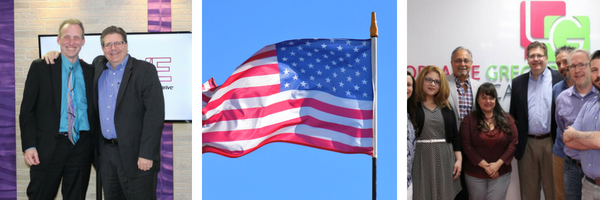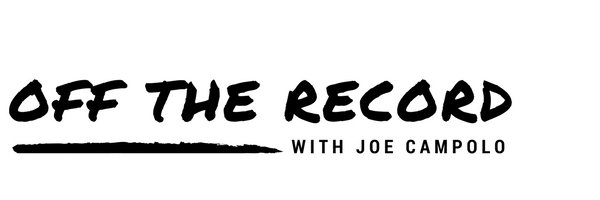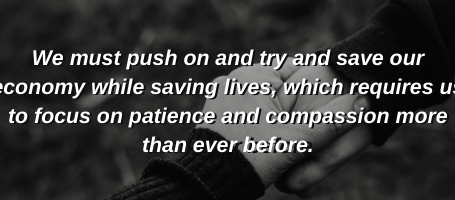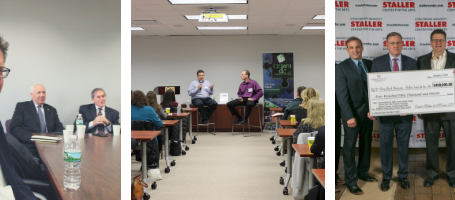 On Capitalism – Here we sit on the heels of another school shooting, and another 10 dead, and we remain paralyzed as a country about what to do. If it were money at stake instead of lives, our capitalist system would likely find a way to fix the problem overnight.
On Capitalism – Here we sit on the heels of another school shooting, and another 10 dead, and we remain paralyzed as a country about what to do. If it were money at stake instead of lives, our capitalist system would likely find a way to fix the problem overnight.
We recently saw this with #MeToo – for decades, powerful corporations didn’t care that innocent women were being abused and victimized, because the men abusing those women were making those corporations money. It wasn’t an epiphany or morality or even lawsuits that prompted those companies to change their position – it was the extreme financial risk they now faced because consumers of their products and services would no longer tolerate their behavior. The result of this consumer backlash was that behavior that had been ignored, tolerated, and even defended by those companies for years suddenly became abhorrent to them in an instant, and massive change rapidly ensued.
Same with the NFL and their recent rule that all players are now required to stand during the national anthem (or stay in the locker room). Last year, notwithstanding extreme political pressure, the NFL dug into its position that while they would “prefer” that players stand during the national anthem, they would not require it as they understood and respected the players’ First Amendment right to peacefully protest. After taking that position, however, the NFL learned a hard lesson about the First Amendment and its relationship with capitalism – namely, that while the players certainly have the right to “say” what they want, consumers also have the right to not listen to them, and especially not pay to listen to them. Many fans engaged in their own protest by refusing to come to games or even watch them on television, resulting in fewer dollars to the owners, vendors, and advertisers, which in turn prompted the NFL’s reversal of its position. Once again, it was economics, not a sense of patriotism or a court order, that forced the NFL to change.
Understanding these dynamics, if we are going to make more rapid progress toward solving the epidemic of gun violence, we need to – in addition to all the other measures I have addressed in previous blogs – find a way to create economic incentives and disincentives to gun manufacturers, dealers, and purchasers. And while I am a lawyer and not an economist, it seems that a logical first step would be to recognize and treat the gun industry the way we treat other high-risk industries, namely alcohol and tobacco (interesting, we already have a federal agency called the Bureau of Alcohol, Tobacco, and – yes, Firearms).
Just like manufacturers and consumers of alcohol and tobacco products, gun manufacturers and consumers should have taxes levied against them that are to be specifically allocated to gun safety training programs, awareness campaigns, as well as security and mental health resources for schools and any other safety and prevention measure that can be reasonably implemented. Additionally, all gun manufacturers who sell firearms in this country should be required to contribute to a fund that can be used to compensate families who lose loved ones to gun violence. Creating such a fund would be consistent with the way other industries self-regulate – for example, a portion of a lawyer’s license and bar association fees typically goes to a fund used to compensate victims of rogue lawyers, and a portion of our automobile insurance premium goes toward coverage for an accident with an uninsured motorist. We should also offer economic incentives (in the form of tax relief) to those in the industry who go above and beyond the legislative requirements and do things like create tamper-proof designs so that guns can’t be altered, or who voluntarily require their dealers to have stricter standards relating to the sale of their firearms.
Unfortunately, despite our best intentions, those of us who have not been directly affected by gun violence do not have the fortitude needed to effectuate meaningful change. This sentiment was echoed by CNN commentator Mel Robbins in her article “Why Americans Don’t Do Anything about Mass Shootings,” which cites a World War II study relating to the bombings in London in 1940-41 to help demonstrate this point about human apathy. That is not to say that we don’t care, but thoughts, prayers and new Facebook profile picture frames are not enough. We need to use the “invisible hand” of capitalism to help us force the gun industry to spend its own money to find ways to stop this crisis. Otherwise, we may not be able to stop it until we lose our own apathy by having to endure the unthinkable and unbearable experience of losing a loved one.
WINE OF THE WEEK
This week’s selection is the 2013 Chateau La Nerthe, Chateauneuf-du-Pape ($58.99) While I am not typically a big fan of the Rhône region wines, this one was extraordinary. It had a bouquet that blended berry and spice aromas and was light on tannins and acidity. Very drinkable, and went as well with the branzino as with the short ribs. We found this gem on the wine list at Danford’s in Port Jefferson, and enjoyed two bottles with our good friends Malissa and Matt Burke.
AROUND TOWN
I Asked a CEO – Greg Demetriou, founder and CEO of Lorraine Gregory Communications, not to mention a great client and friend, recently treated me to a tour of his beautiful new facility in Edgewood in the Heartland Business Center. I was fascinated by the story of how this powerhouse marketing and communications agency, complete with a studio and high-tech printing facility, had humble beginnings as a direct mail company staffed by three people stuffing envelopes. Keep an eye out for our upcoming spotlight on this Long Island success story.
CMM Live – Collaboration was the word of the day on our recent episode of CMM Live focusing on Long Island’s vibrant nonprofit sector. My good friend John Miller, President and CEO of the Guide Dog Foundation and America’s VetDogs, inspired us all with personal stories of the countless lives these organizations change every year. Fresh off the 2018 Imagine Awards, Ken Cerini, nonprofit accounting guru and head of Cerini & Associates, discussed how he works with the nonprofit sector to maximize their impact. Both guests noted that collaboration among organizations is key, and I ended the show with lots of ideas to help foster new partnerships. Stay tuned…
School’s Out for Summer – But not at CMM, where we are very excited for our new on-site classroom space with state-of-the-art digital technology! I stopped by the Farmingdale showroom of Office Furniture Direct last week to select sleek yet functional desks and chairs for the new space. Longtime CMM client, friend, and vendor Steve Myers of Office Furniture Direct always steers me in the right direction. I’m excited to share more details soon about CMM Academy and its campus right here in our office.
Networking Breakfast – I found myself back at the Premier Diner in Commack, this time for breakfast with Daniel Shaughnessy of BNY Mellon Wealth Management and John Limongelli of NRL Wealth Creation Strategies. We had a great conversation about how we can help one another grow our networks.
Focus on What Counts – I really enjoyed my visit with Citrin Cooperman this week to check out their ultramodern Melville office. Partners Mike Sabatini, Corey Bell, and Mike Myers (groovy, baby!) showed me around their millennial-friendly space. These accountants really personify the entrepreneurial drive that helps the firm attract top-notch clients and staff. I’m excited to profile this terrific firm in an upcoming spotlight feature.
Memorial Day – As we head into a long weekend that marks the unofficial start of summer, let’s take a moment to reflect on what Memorial Day is truly about. In honor and in memory of those who made the ultimate sacrifice in service to our country, I’d like to share “Grass,” a poem by Carl Sandburg:
Pile the bodies high at Austerlitz and Waterloo.
Shovel them under and let me work—
I am the grass; I cover all.
And pile them high at Gettysburg
And pile them high at Ypres and Verdun.
Shovel them under and let me work.
Two years, ten years, and passengers ask the conductor:
What place is this?
Where are we now?
I am the grass.
Let me work.



